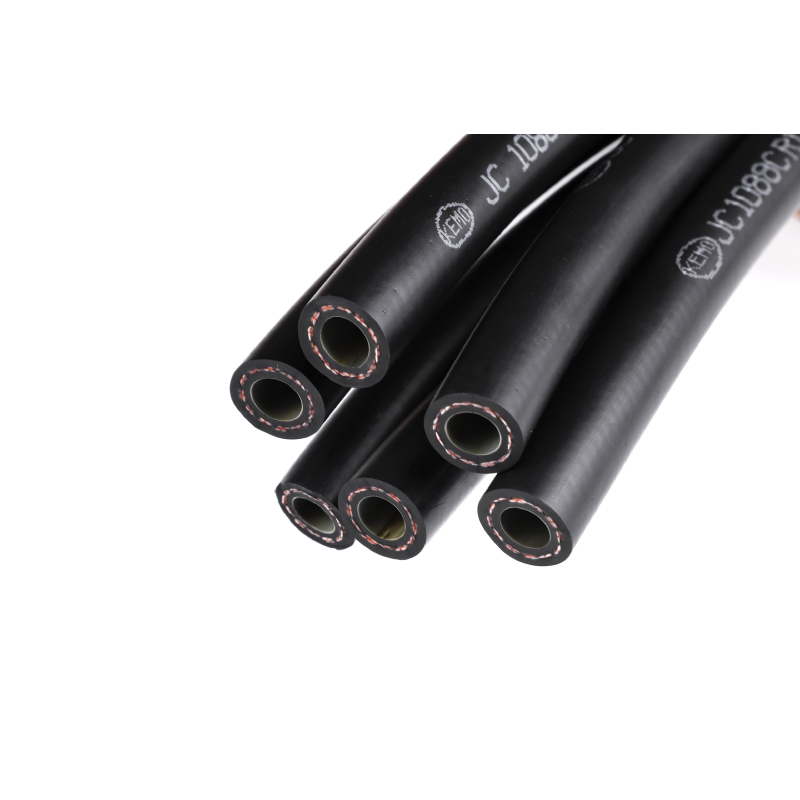Repairing a Damaged Brake Line for Safe Vehicle Operation
Nov . 09, 2024 07:18 Back to list
Repairing a Damaged Brake Line for Safe Vehicle Operation
Fixing a Brake Line A Step-by-Step Guide
Brake lines are an essential component of any vehicle's braking system. They transport brake fluid from the master cylinder to the brake calipers, allowing the driver to stop safely. Unfortunately, brake lines can become damaged due to corrosion, wear and tear, or external impact. If you find yourself dealing with a leaking or broken brake line, it’s crucial to address the issue immediately, as it poses a significant safety risk. Here’s a step-by-step guide on how to fix a brake line.
1. Gather Your Tools and Materials
Before you start, you’ll need a few tools and materials. Make sure to have the following items on hand
- Replacement brake line (ensure it's the right length and diameter) - Brake line flaring tool - Pipe cutter - Wrenches (for specific fittings) - Brake fluid - Safety goggles - Jack and jack stands (to lift the vehicle) - A clean towel or rag
2. Safety First
Before you begin the repair process, safety is paramount. Ensure the vehicle is on a flat surface. Use a jack to lift the vehicle and secure it with jack stands. It’s vital never to work under a car supported only by a jack. Additionally, wear safety goggles to protect your eyes from any brake fluid spills or flying debris.
3. Identify the Problematic Brake Line
Locate the brake line that requires repair. It may be corroded or visibly damaged. In most vehicles, the brake lines run along the undercarriage, so you may need to crawl underneath to inspect them. Look for signs of leaks or damage. A brake line that has corroded entirely will need to be replaced.
4. Remove the Damaged Brake Line
Use a pipe cutter to cut the damaged section of the brake line. Make sure to cut cleanly to avoid further damage to the remaining brake line. After cutting, use a wrench to disconnect the fittings at both ends of the breake line. Be prepared for some brake fluid to leak out, so have a rag handy to catch any drips.
5. Measure and Cut the New Brake Line
fixing a brake line

Once you've removed the damaged line, measure the length of the old line. Use this measurement to cut the replacement brake line to the appropriate length. It's essential that the new line fits snugly, so take your time measuring and cutting.
6. Flare the Ends of the Brake Line
Using a brake line flaring tool, create flares at both ends of the new line. This process involves inserting the end of the pipe into the flaring tool and using the tool to shape the end into a flare. Proper flaring ensures a secure connection with the fittings, preventing leaks.
7. Install the New Brake Line
With the new line prepared, carefully connect it to the existing brake system. Start by attaching one end to the caliper or junction block and then secure the other end to the master cylinder or distribution block. Tighten the fittings using a wrench but be careful not to overtighten, as this could damage the fittings.
8. Bleed the Brake System
After installing the new brake line, it is crucial to bleed the brake system to remove any air bubbles. Begin at the brake farthest from the master cylinder (usually the passenger side rear) and work your way to the closest. This process often requires two people one to pump the brake pedal and the other to open and close the bleeder valve on each caliper.
9. Test Your Brakes
Once bleeding is complete, carefully lower your vehicle and take it for a test drive in a safe area. Ensure that your brakes feel firm and responsive. Check for any signs of leaking around the newly installed brake line.
Conclusion
Fixing a brake line can seem daunting, but with patience and care, it is a manageable task for many DIY enthusiasts. Always prioritize safety throughout the process, and don’t hesitate to consult a professional if you’re unsure. Remember, your brakes are one of the most critical aspects of your vehicle’s safety.
